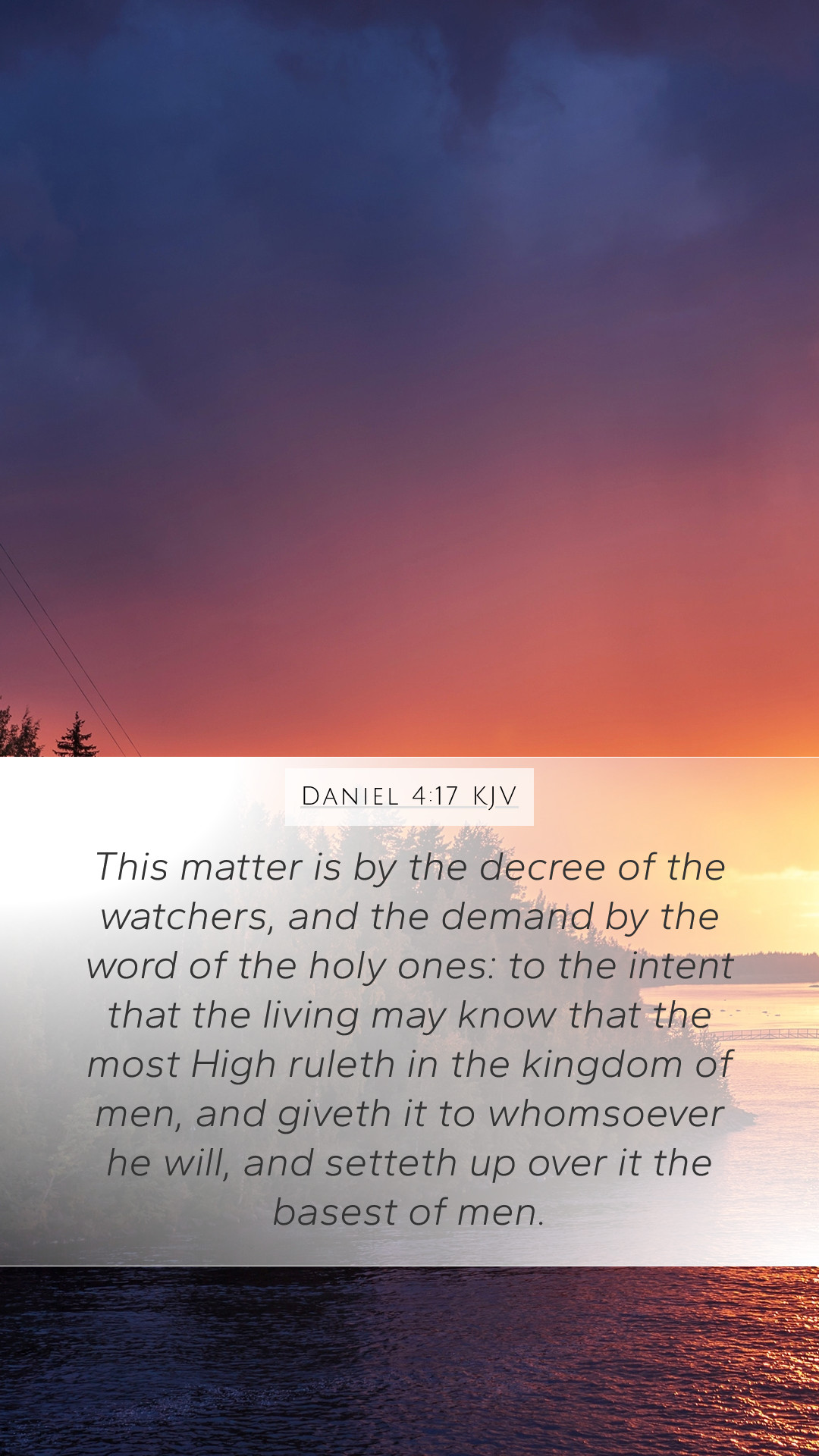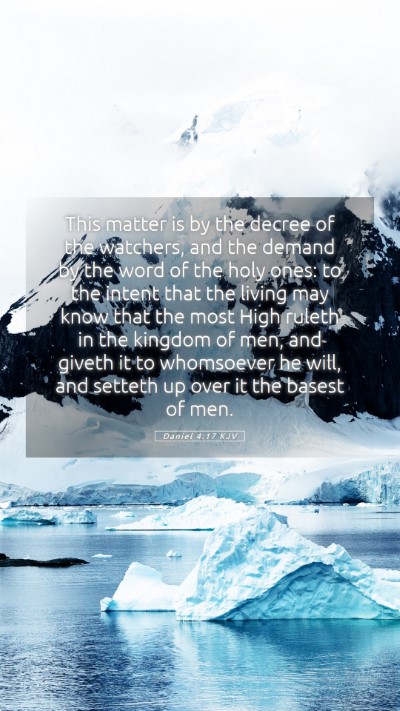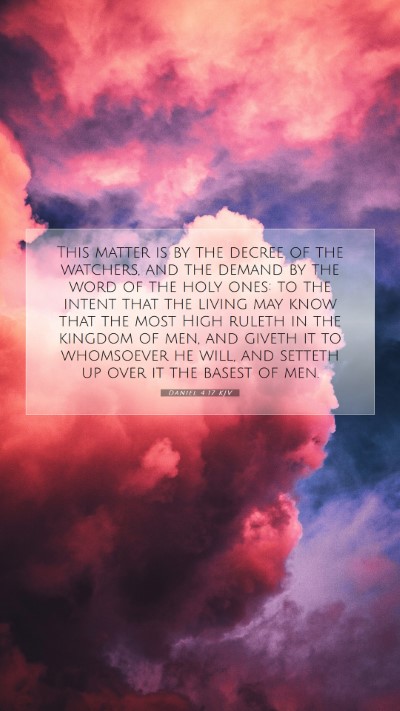Bible Verse Meaning: Daniel 4:17
Verse: "This matter is by the decree of the watchers, and the demand by the word of the holy ones: to the intent that the living may know that the Most High ruleth in the kingdom of men, and giveth it to whomsoever he will, and setteth up over it the basest of men." (Daniel 4:17)
Overview
Daniel 4:17 serves as a proclamation of the divine sovereignty of God over human kingdoms. It illustrates the concept that God, the Most High, is ultimately in control, and His will is established through human affairs. This verse has deep implications for understanding power dynamics, the nature of authority, and the divine purpose in the rise and fall of leaders and nations.
Commentary Insights
-
Matthew Henry:
Henry emphasizes that the decree of the watchers symbolizes an order from heavenly beings that reflects God's governance. He underlines that this verse is a reminder of God's authority over all rulers; He has the power to appoint and remove those in power according to His divine plan.
-
Albert Barnes:
Barnes focuses on the term 'watchers,' suggesting that these are angelic beings who observe and administer the affairs of the world. He expounds on the significance of knowing that God is the ultimate authority, which reassures the oppressed and challenges the pride of those in power.
-
Adam Clarke:
Clarke interprets this passage by stressing the equality and justice of God's rule over humanity. He remarks that the “basest of men” implies that God is capable of using even the most unlikely individuals to fulfill His purposes, highlighting the surprising ways in which God's will can manifest in history.
Theological Themes
- Divine Sovereignty: This verse asserts that God governs all kingdoms and appoints rulers according to His purposes, emphasizing that power is not merely a human construct but rather part of God's divine plan.
- Human Responsibility: The verse calls all living beings to recognize and acknowledge God's authority, encouraging humility and accountability in leadership.
- Judgment and Mercy: The passage indicates that God's judgment is involved in the governance of nations, but it also leaves room for mercy in the lives of those who may be deemed unworthy by human standards.
Application in Daily Life
Understanding this verse can lead to several practical applications:
- Recognize the larger divine narrative: In times of political or personal turmoil, trust in God's overarching plan can provide peace.
- Practice humility: Acknowledge that all authority is established by God, stirring individuals to act with integrity and servant leadership.
- Engage in prayer: By understanding that God is in control, believers are called to pray for their leaders, asking for wisdom and guidance.
Cross References
- Psalm 75:6-7: "For promotion cometh neither from the east, nor from the west, nor from the south. But God is the judge: he putteth down one, and setteth up another."
- Proverbs 21:1: "The king's heart is in the hand of the Lord, as the rivers of water: he turneth it whithersoever he will."
- Romans 13:1: "Let every soul be subject unto the higher powers. For there is no power but of God: the powers that be are ordained of God."
Conclusion
Daniel 4:17 serves as a profound reminder for believers about the nature of God's rule and sovereignty over human affairs. Through its layered meanings and implications, it encourages believers to align their lives with God's purpose and reign, trusting in His divine control.


